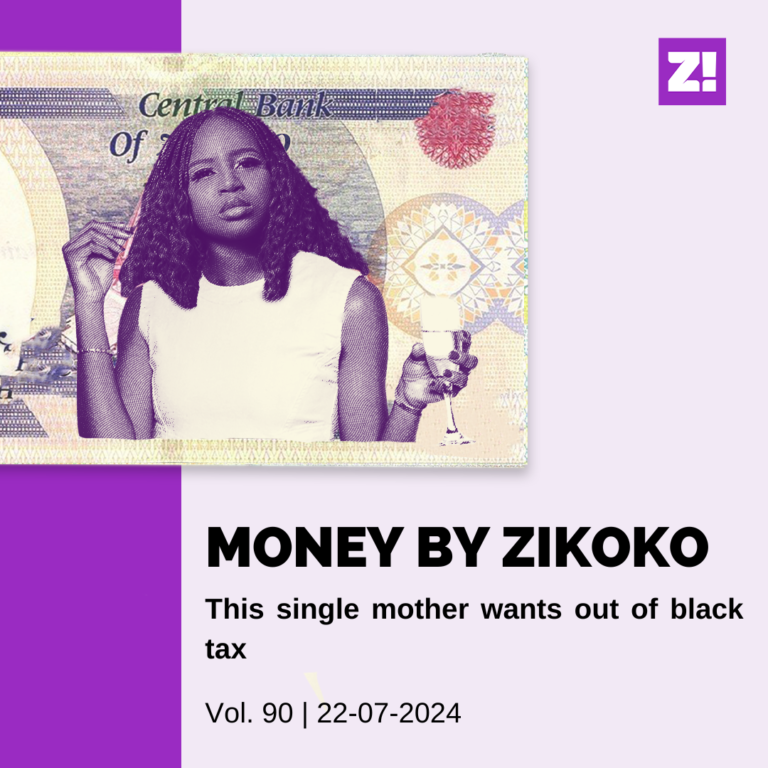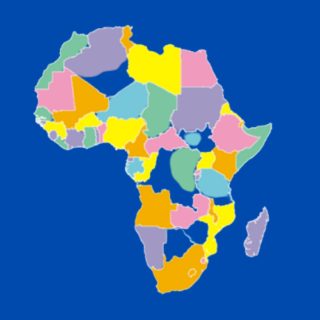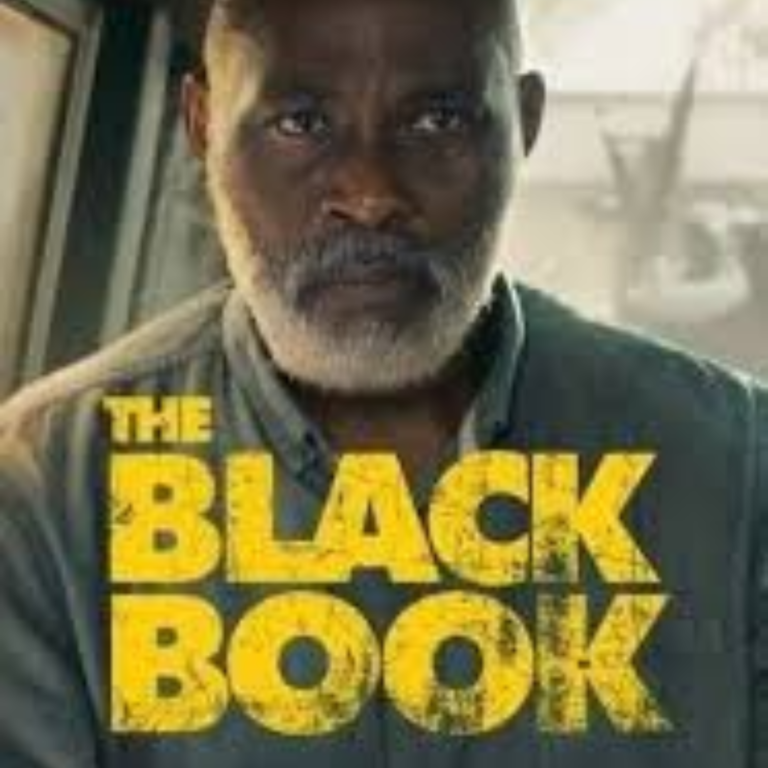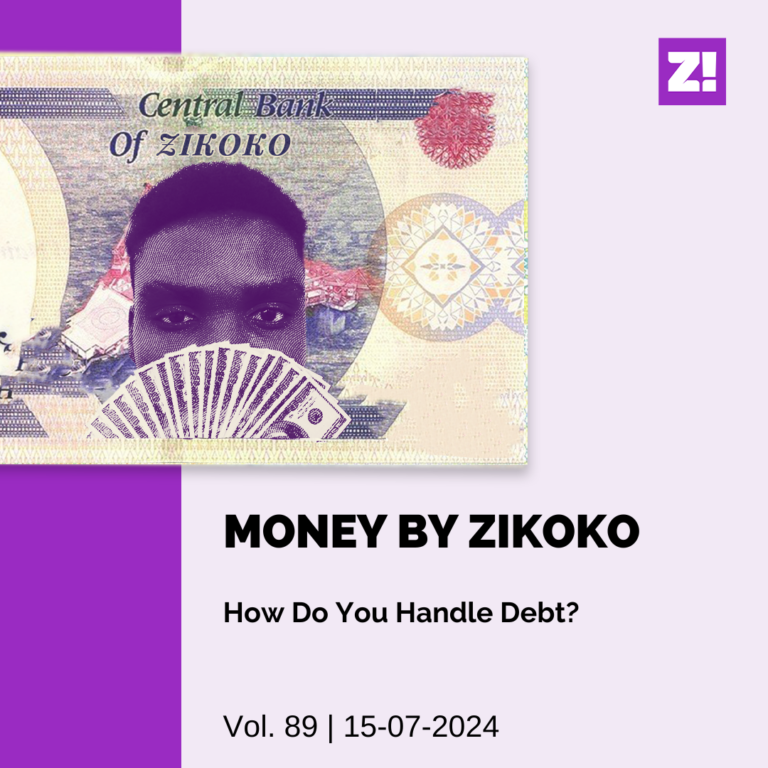Every week, Zikoko seeks to understand how people move the Naira in and out of their lives. Some stories will be struggle-ish, others will be bougie. All the time, it’ll be revealing.
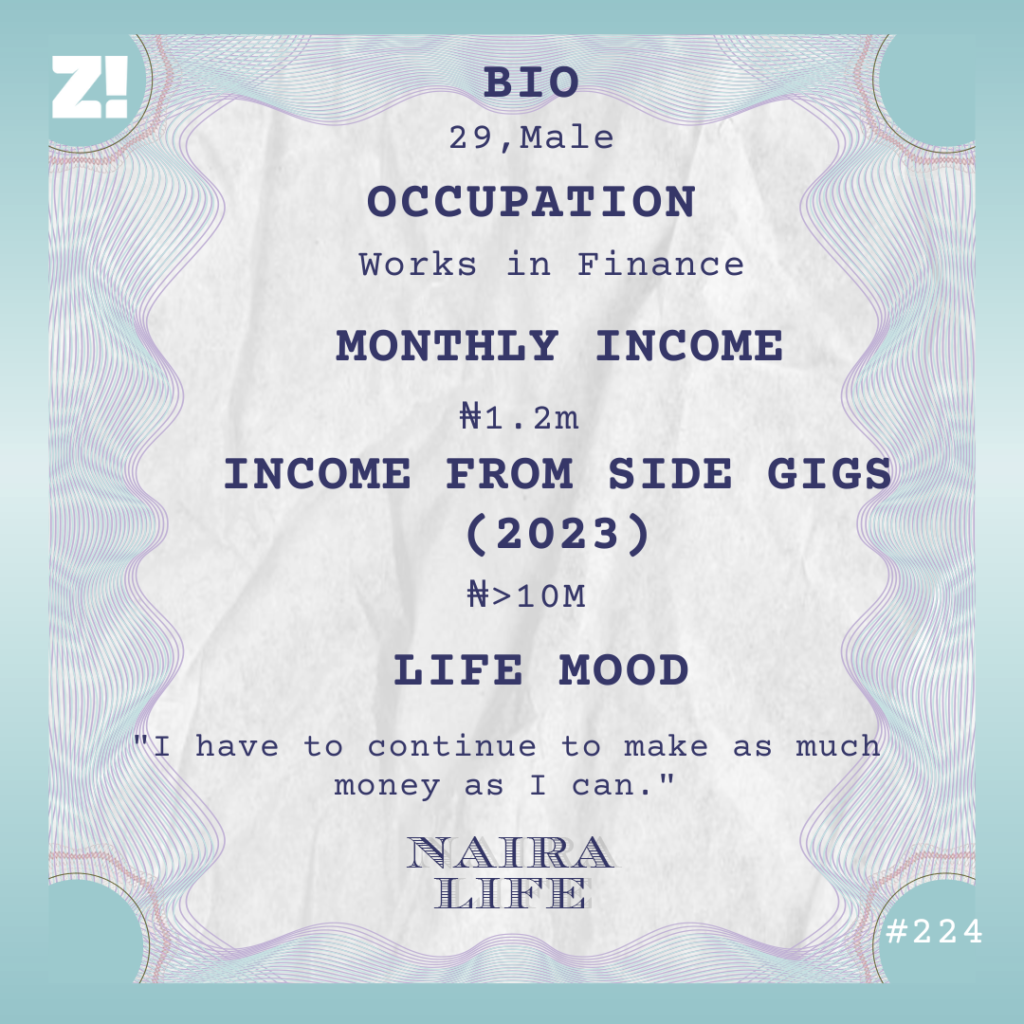
Let’s take it back to your first memory of money
I’ve been a hustler for as long as I can remember. But my first significant memory was in 2008 when I was in SS two. I was one of the students in my boarding school who’d “jand” — it was what we called sneaking out of school into the town. I’d return to school with balls of wara and sell them to students in my hostel at double the price. I always sold out in a day and made about ₦1k per trip.
Mad. Where do you imagine the hustling spirit came from?
I’m not sure, but my parents were hard workers. We didn’t have conversations about money but I could tell that we were comfortable because they put in the work. And that if I wanted to make money, I had to always figure out a way to. This thinking came in handy in university.
What do you mean?
In 2010, I got into a university in the southwest, and my monthly allowance was ₦25k. I didn’t like the school, so I transferred to a different university to study finance.
Unfortunately, my dad lost his job around the same time, so things became a bit hard. After paying for my school fees and other basic expenses, he sat me down and pretty much said, “You’re on your own.”
My monthly allowance became inconsistent from that moment, and I knew the hustling had just started. Omo, I hustled.
What did you do?
In my first year, a friend from class introduced me to waiting tables at hotels and parties. The sweet thing was, there were loads of them in the town, so I was never out of a gig and was making ₦4k every weekend. This kept me going until 200 level when I switched to something else.
Let’s hear it
I started a laundry business in the hostel. My department had a dress code, which meant that I always needed to do my laundry. I decided that I might as well make a business out of it, so I told guys in my hostel that I could wash and iron their clothes for a fee. I don’t remember how much I charged, but I usually made about ₦4k/week on this as well.
Sounds like a lot of clothes
It probably was, I won’t lie. But I had the time and needed the money.
₦20k/month was decent, but what moved the needle was the next thing I did. After finishing my second-semester exams in 300 level, I overheard someone talking about how they had just contracted another student to do their final year project analysis and paid them ₦7k for it
I heard the money and decided that I’d learn how to analyse data and make money from it. During the session break, I sat down and learned about research methodologies, SPSS and Eviews. By the start of the next session — my final year — I already had three final year projects to work on and charged each student ₦40k to write the whole thing.
Interesting
The sweet spot was in the second semester when the project deadline was close. See, I don’t remember how many people I helped write their project’s chapter four and chapter five, but it was ₦10k per pop. Once I looked at their research objectives and methodology, I knew what to do. On the side, I also reviewed and edited several literature reviews into shape. This was ₦4k-₦5k/review.
Although I fell sick because I was working insane hours and depended on caffeine to function, I made quite a bit of money in three months. At the peak of it, I was making between ₦60k and ₦100k in a week. By the time session ended and I was leaving uni, I’d made about ₦500k from the project gigs.
I had only about ₦120k in savings, though. As I was making the money, I was also spending lavishly on myself and my guys. But what remained was enough to take me to the north central where I was mobilised for NYSC. Luckily, there was a polytechnic in the town I was posted to.
Why was this important?
I knew I could always make money wherever students were. When I got to the town, I went around the polytechnic campus and estimated that about 4k students studied there. Then I went to their business centre and saw that there were only 2-3 people offering printing services in the school, and they weren’t even doing much. I was sure the place was mine for the taking.
After I sorted out my PPA — a secondary school — I went to the state capital to buy a printer and a photocopier. It wiped out the rest of my savings, but I didn’t mind. I was in business. This was in January 2016.
How did that go?
On average, I was making ₦5k during the slow days. Photocopies went for ₦10/page and printing was between ₦50 and ₦200/page. And this was when nothing was happening. I made a lot more when it was time for JAMB registrations because of the influx of applicants to the polytechnic. I charged ₦1k for every registration, and I registered between 20 and 30 people in a day. The same thing happened during post-UTME registration.
I made between ₦500k – ₦700k in profit during my service year. I should add that I was still offering final-year project services for students at the university I graduated from, and I made close to a million naira this time.
Wild. But did you leave the town immediately after service?
No. I stayed there for two more years because there was another income opportunity. This time, it was agriculture. I bought bags of maize and soybeans and gave them to the farmers in the town. The deal was to get three bags back during harvest — which was three-four months after the planting season. Now, a bag of these seeds costs ₦10k.
In 2017, I gave the farmers 20 bags of seeds and got 55 bags back. In 2018, I went all in, did 100 bags and got back 200 bags during harvest. But I had to leave the town after that — the Fulani crisis had started and the town wasn’t as safe anymore. Also, I didn’t see a future in what I was doing. The money was decent but the businesses weren’t sustainable.
Fair enough. Did you have a plan?
The plan was to put my degree to use and get into corporate finance. In January 2019, I returned to the southwest, set up another printing shop again to buy myself some time and was making about ₦200k/month. In the middle of the year, I got a job — a corporate development role at a manufacturing company.
How much?
₦180k. It was a pay cut for me, but it was also an entry-level role. I took the job for two reasons: I needed the finance experience. Also, the company was owned by a private equity company, and I saw a pathway to working my way into the private equity arm of the business.
Why were you interested in private equity?
I liked that private equity was about the pure finance of investing, and I’d always wanted to know how corporate companies did it. It was generally the best move for me at the time.
About a year later, I got a job as an analyst at the P.E. division of the company. This move brought my salary to ₦290k/month.
Sweet. How did the move happen though?
My hunger and drive were insane. First, I was very intentional about working closely with the private equity guys at the company and made myself useful to them. Every chance I got, I volunteered to help them with their work.
Also, I was upskilling like crazy. I took loads of courses on Coursera, and I didn’t even pay for them. Once I saw a course I thought would be useful, I’d audit it and pick what I could learn from it.
Got it. What happened next?
As I was learning on the job, I realised something else: there was a big opportunity for side gigs, so I went for it. Businesses were always looking for someone who could help them do financial projections during fundraising, build a business plan or write a strategy document. One of those things usually popped up at least once a month, and at the end of it, I could make up to ₦400k.
The good thing was that these side gigs thrived on referrals. If I did a good job for someone, I could expect that they’d bring more gigs my way. Between 2020 and 2021, my combined income was about ₦500k – ₦600k.
I’m curious how you were moving money out
It takes a certain income threshold to save and ₦500k wasn’t it for me. I always wanted to live my best life, and what I made was only enough to afford the standard of living I wanted. A portion of my income — about ₦100k — went home to my parents. The rest went into feeding, dates, transportation and nightlife expenses. No savings whatsoever but I wasn’t even bothered about it.
Interesting
I was more concerned about building my skills and earning more. I’d just started my career in finance and was certain the opportunities would come.
By the first half of 2022, my confidence in my skill levels had grown, and I knew I could quickly get a better-paying job. So I started looking for new opportunities. The first investment company I applied to hired me to lead their team. The pay was ₦800k/month.
From ₦290k?
My proof of work was enough to land me the role. In addition, my side gig experiences had shown me what was obtainable and I factored that into my negotiation with them. The company gladly agreed to pay me what I asked for. I only spent about six months there though.
Why?
I wasn’t learning anything and wasn’t growing at all. My boss didn’t know so much about what we were doing and was always in my way. When it became too frustrating, I dipped.
I’d seen a role at another investment company that I thought was a great fit for me on Linkedin. I reached out to the founder and sent my CV, starting the conversation before I left my previous job. A few calls later, I got an offer letter.
₦1.2m/month.
Another solid income growth
I mean, that’s always been the plan. But there’s one more thing — my bonus at the end of the year is 100% of my annual salary. Essentially, I’m getting a lump sum payment at the end of each year.
God when?
I thought it was a fair deal, and I took it. I’ve been there for a few months now.
What about your side gigs?
I never stopped working on side projects, and I’ve refined my approach to deciding the projects I want to work on. In 2022, I started cutting down on low-value gigs. If I didn’t think the business could make ₦200m/year in revenue, I wouldn’t take the job. That usually meant they couldn’t pay me what I thought was a fair price.
How much did you think was a fair price?
At least ₦1m. And I was getting about two gigs every three months. Also, I worked part-time with a startup while I was at my previous company, and they were paying me ₦350k/month.
Lit. What could your combined income do for you in 2022?
It got me my car at the end of the year, which cost about ₦7m.

What’s happened between then and now?
Now that I earn ₦1.2m/month, I’ve decided that I won’t take any side project that doesn’t pay me more than my salary. This means that I’m only working for big, corporate companies these days. The scope of my work includes building and creating information memorandums, business plans, strategy documents, forecasts, and investor relations.
I’ve done two big projects this year — one paid ₦5m and the other paid ₦8m. I still do one or two smaller projects that pay about ₦1m every month.
However, these projects are bigger than the ones I used to do, so I’ve had to outsource some bits of it and paid out ₦3m to the folks that worked on them with me. I don’t mind that. I’m hoping to do about four more projects of this size this year, and I’ll be good.
That said, I’ve been consulting for another startup since February, and my income from that source is ₦500k/month.
Phew So what do your finances look like at the moment?
I’ve not touched my actual salary this year. The moment it comes in, I send it to an investment management app and buy indexes of US companies — the S&P 500s. I live on what I make from the smaller side gigs that come in monthly and consulting money.
How much do you imagine you have in investments now?
$20k. It’s good progress, but it’s barely a safety net. I’m hoping to build it up to $50k by the end of the year. My salary for the next six months is going in there, and there’s also the lump sum payment at the end of the year. Now, if I get about the big side gigs I’m looking for, I may very well go over my projection.
Now you want to know about my expenses, don’t you?
Haha. I do
At the moment, my monthly expenses are between ₦600k and ₦1m. Last month, I spent ₦1.2m. Let me break it down.

Gifts are typically my highest expenses. I believe that when you have money, you need to take care of your people. For example, two of my guys got married last month, and I had to show up for them. I spent about ₦350k on both weddings. Also, I classify the monthly ₦90k allowance I give my girlfriend under gifts.
I’m curious. Do you think you live within your means?
Absolutely. I make more money than I spend, so I’m good. Do I think I can bring these expenses much lower? Yes. But it’s a work in progress. The important thing is that I have to continue to make as much money as I can.
Word. Is there anything you want but can’t afford?
1% of Apple, haha. But if we’re talking about the basic things, I’m good. It’s been a while since I felt like I can’t afford something. Last last, I’ll put some money aside for it.
On a scale of 1-10, how would you rate your financial happiness?
It’s a solid six. I’d have said it’s a 10, but I don’t want to get complacent. There’s always something else to aspire to. But if I suddenly start earning $20k/month tomorrow, it’s a 10. I won’t even care anymore.
If you’re interested in talking about your Naira Life story, this is a good place to start.
Yes, I want to do a Naira Life
Find all the past Naira Life stories here.


